Agriculture, Livestock Farming, Environment: 3 Ways to Tackle Malnutrition
According to the World Food Programme, Chad is facing acute food and nutrition insecurity for the fourth year running. Nearly 1.9 million people need food aid during the lean season from June to August, when family food reserves are diminishing. The provinces of Kanem and Barh el Gazel have not been spared. Local authorities, citizen dynamics and NGOs are taking action to tackle malnutrition and support improvements in agriculture and livestock farming.
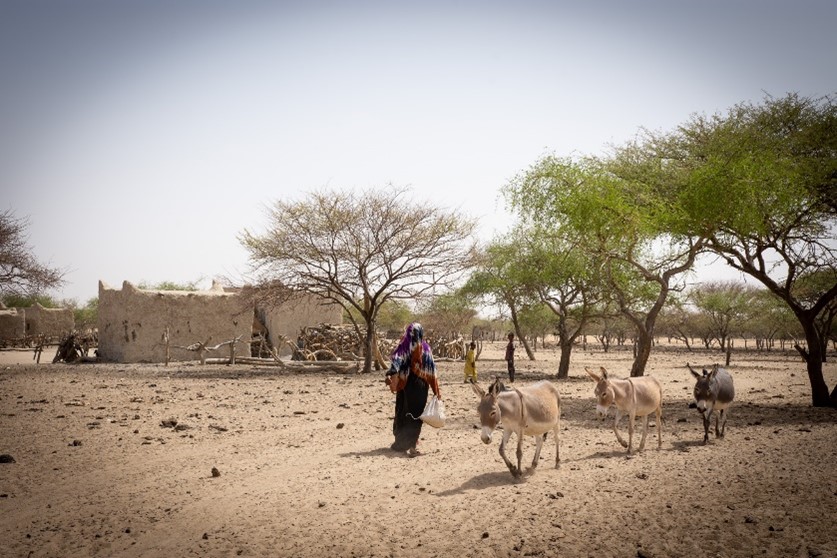
The Barh el Gazel Province is home to 400,000 nomadic and sedentary inhabitants, whose main activities are livestock breeding and agriculture. According to Abba Saradingar, secretary general of the province, the region’s development challenges include farming, environmental conservation and tackling abusive logging. “The development of agriculture goes hand in hand with protecting nature.”
In Kanem Province, malnutrition is higher than in other provinces. This problem calls for a multi-sectoral approach. According to Mai Ali Taher, Delegate in charge of Agriculture for the Kanem Province, “we need to work on agriculture, livestock farming and the environment, if we are to succeed in eradicating malnutrition“.
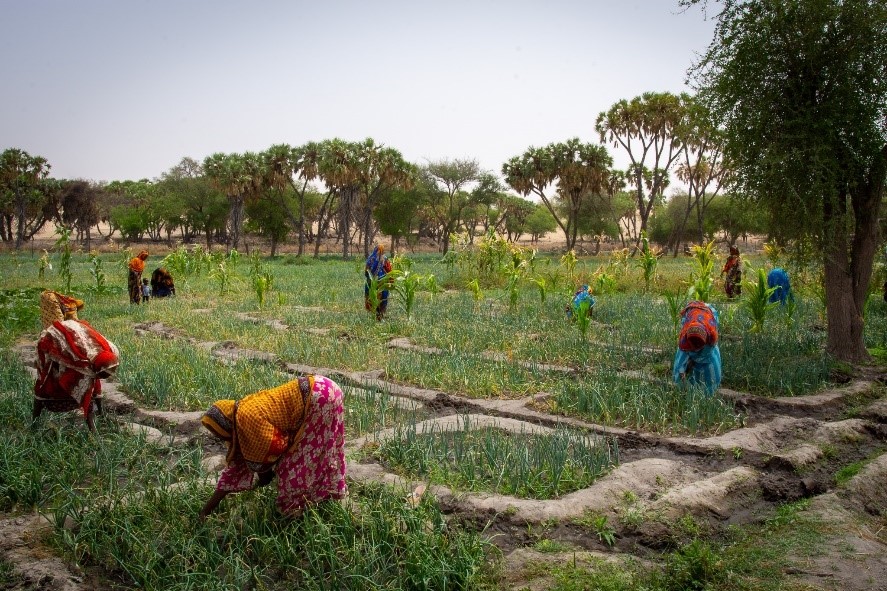
Cereal Banks: A Practical Solution Called for by the Population
The DETEKANEM project, implemented by the consortium of NGOs Aider, Oxfam and Action contre la Faim and financed by France, operates in two provinces of western Chad (Kanem and Barh el Gazel) to support agriculture and livestock farming and tackle malnutrition, while strengthening social cohesion.
Activities were selected in conjunction with local coordination structures, in particular the Provincial Action Committees (CPA). The aim is to support market gardening, livestock breeding and agriculture, and to set up mechanisms to help people get through periods of food instability, such as welding. The construction and implementation of cereal banks is one of the concrete actions set up for the most vulnerable communities.
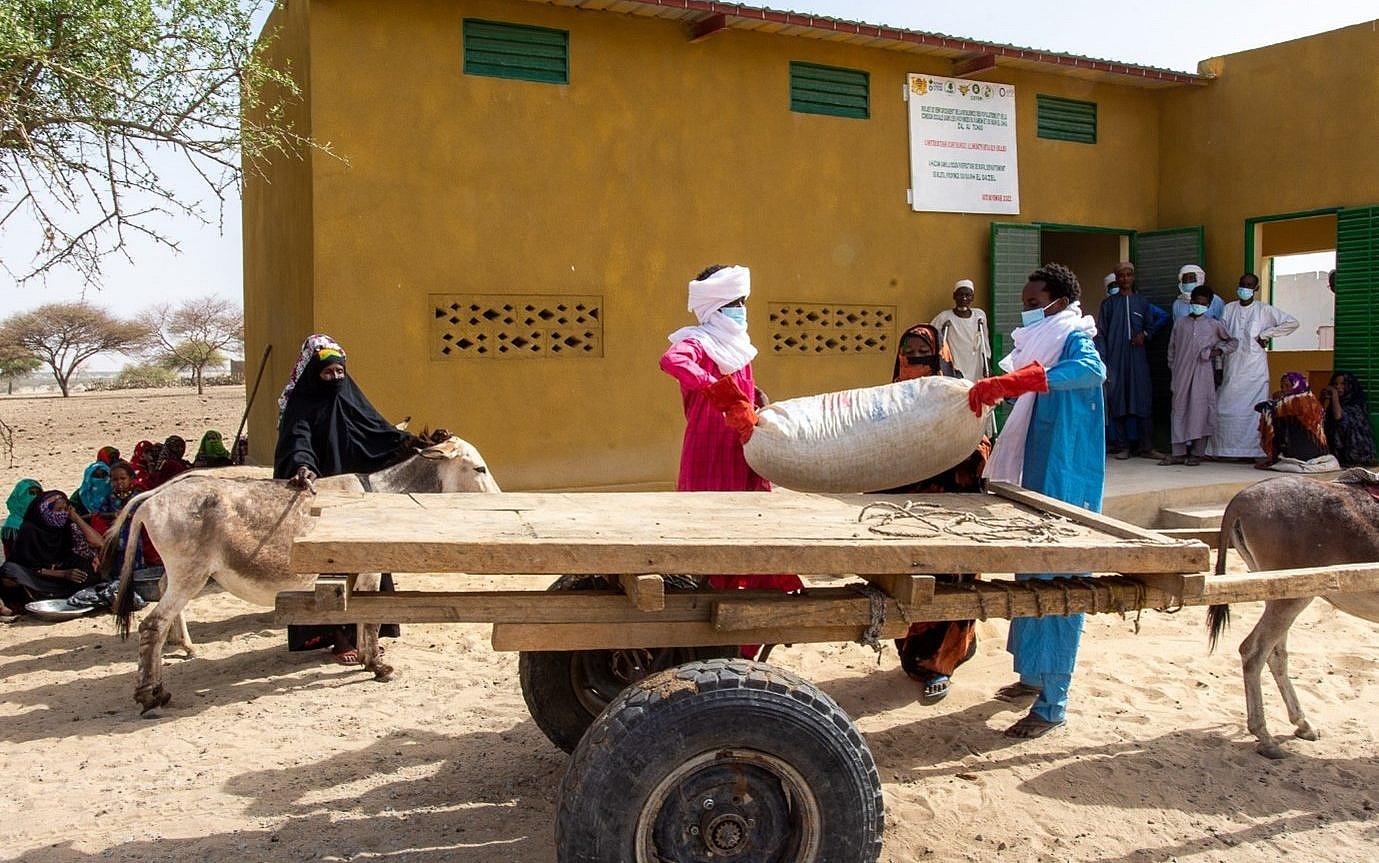
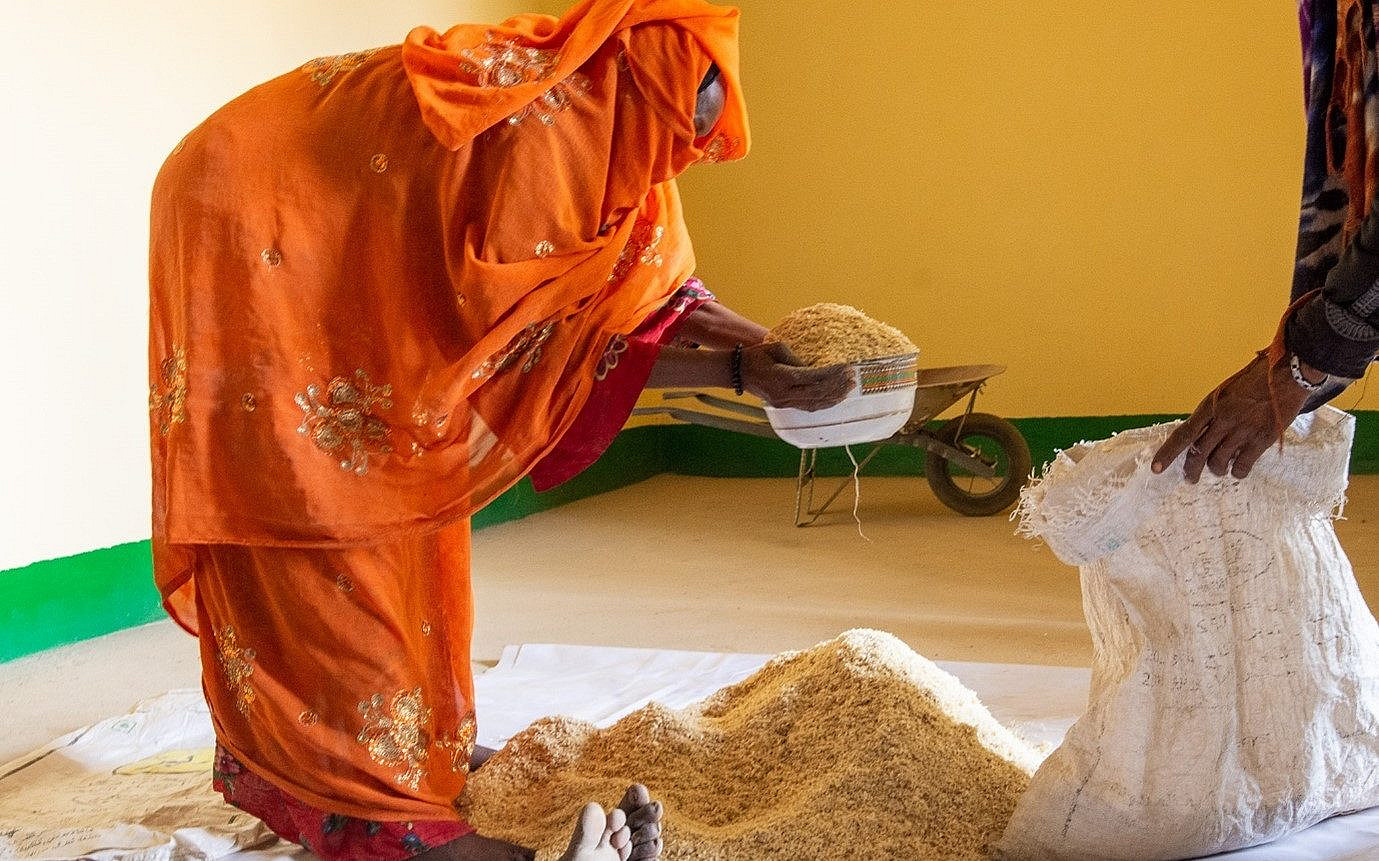
Cereal banks play a very important role. They serve established communities 10 to 15 km around. People can come and buy cereals at reduced prices, allowing them to feed themselves before the new harvests. For livestock, cereal banks and veterinary input banks enable the community, particularly the most vulnerable households, to cope with periods of food shortage. During the lean season, pastures are depleted and animals are unable to put on weight. Cereal banks help animals get through the rainy season.“
Mai Ali Taher
Representative in charge of Agriculture for Kanem Province

In Barh el Gazel, a two-hour drive from Moussoro, the provincial capital, the village of Hazam has benefited from the construction of a cereal bank for livestock. Hamid Adoum Mahmoud, manager of this bank, testifies:
In our area, to escape famine, men go on exodus to work and send money home to their families. Women have to stay and look after the children and animals on their own. With few resources, it is difficult for them to meet their food needs. Buying grain at the bank has several advantages. The price is lower than that of other markets. In addition, we save on transportation costs. When people buy here, they can easily transport their goods by donkeys or other easily accessible means. We have lowered the price of each Koro (unit of measurement) by 10 FCFA compared with surrounding markets. This practice allows us to sell our food and restock. We will be selling these stocks during the lean season, before the rainy season sets in. Prices will be set by the committee, taking into account the prices offered at the various markets in the area. Replenishment will take place after the rainy season, when the bag will be cheaper. The men could stay with their families in the village if the State and the project increased their investment in this livestock feed bank activity, as it diversifies sources of income.”

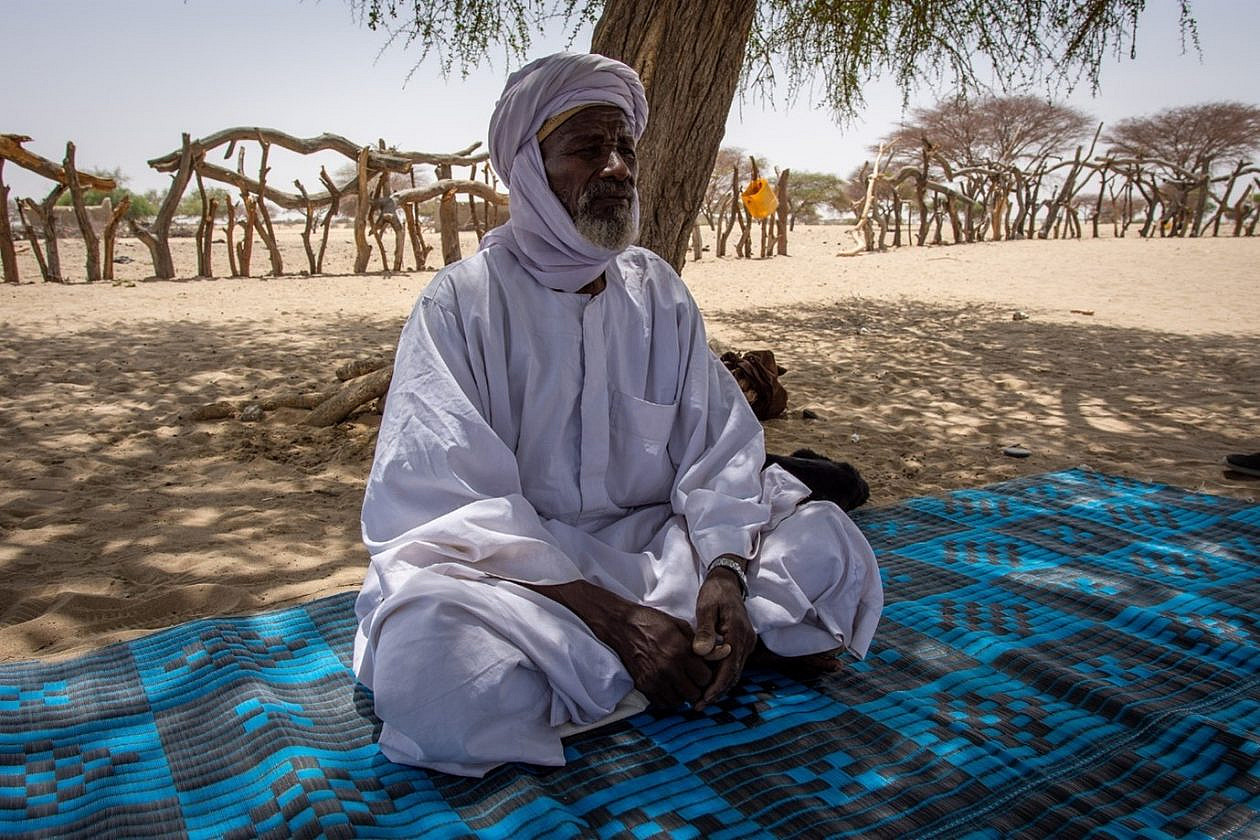
Ali Choukou Mahamat Seid, village chief of Tcholori in Barh el Gazel, also testifies:
In my village, we are faced with chronic malnutrition affecting both children and adults. Our village has lost many animals due to the lack of grazing caused by the rarity of rainfall. At the moment, some of us have a few heads of cattle, but feeding them is a serious problem. In addition, the high price of livestock feed forces farmers to leave their animals at the mercy of nature. Rainfed crops and livestock are our two main sources of income. Over a year ago, a mission from the DETEKANEM project arrived in our village with the authorities. Together, we held a working session during which we identified our expectations and priority needs in relation to the project, before making a general assessment of the village’s situation. Thank God, the installation of this cereal bank has given us hope again for a life in our region!“
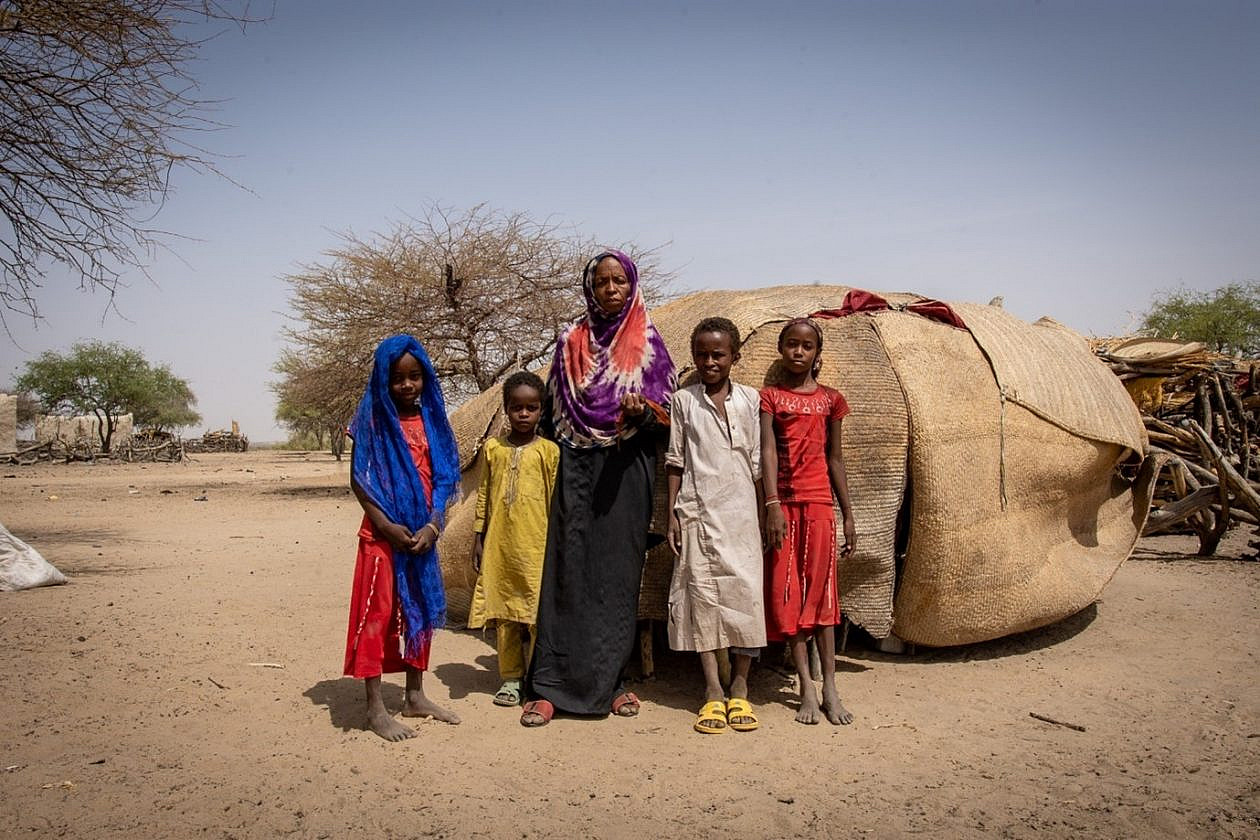
Achta Adoum lives in the village of Tcholori and received goats thanks to this project:
I grow millet in the rainy season. I’m a widow and I feed my children with the produce of my harvests and the generosity of my parents and relatives. Before the “Aliment Bétail” bank was set up in our village, I used to ride my donkey to get feed for my goats at markets far from my home. At the moment, I buy some food for my goats, according to my financial capabilities, at a lower cost than the market price. Daily meals vary from a period to another. When the harvest is good, I prepare the meal for the household twice a day. In difficult times, we eat once a day, usually in the evening. Market gardening does not exist in the area, and the rainfed field remains the main source of income for people in our community, as well as in neighbouring villages. Women are very much involved and play a considerable role in the management of the bank. The vast majority of the bank’s beneficiaries are women. We have received other substantial support from the project. These include the provision of goats, cash transfer support, construction of the bank and grain supplies.”

The Development of Market Gardening in River Beds
In addition to creating cereal banks and supporting small-scale ruminant farming, the DETEKANEM project is helping to develop market garden production in wadis (dry-season river beds).
According to the Delegate in charge of Agriculture for the Kanem Province:
Farmers have adopted the strategy of growing vegetables in the lowlands, the wadis of Kanem. We have seen a marked improvement in market gardening in the wadis. Farmers diversify their crops. They have chosen profitable sectors to support household food supplies. All the plots are occupied: 99% of wadis in the province have already been transformed into gardens, which means that there is a strong evolution going on. Breeders have also changed their mentality, adopting intensive breeding, i.e. keeping only the animals they can handle. During the dry season, they feed them oil cakes and crop residues. It’s an adaptation to climate change.“
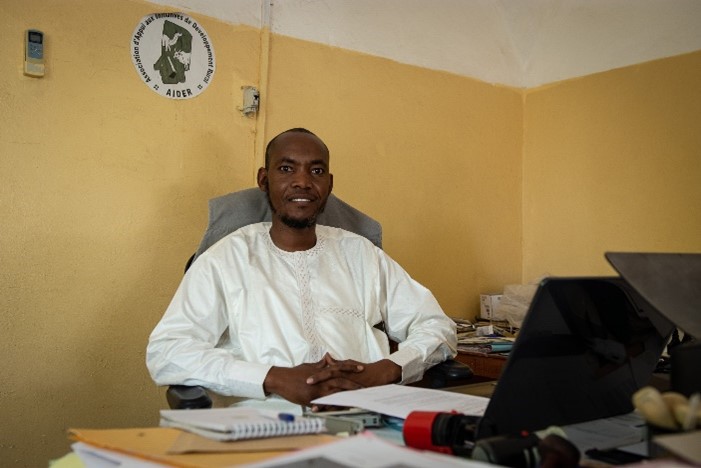
Everything implemented under the DETEKANEM project responds to needs identified during field surveys. The representative of the NGO AIDER explains:
Over the past 20 years, the province of Barh el Gazel has increasingly turned to vegetable production. This means protecting the means of production, such as wadis, and protecting crops, in particular with fencing to secure fields. But food preservation poses a problem at certain times of the year. Because of this challenge, people don’t make much profit from their produce: they sell at low prices, because if they keep their crops, they risk losing them. In terms of livestock, we buy small ruminants locally. Beneficiaries can choose the animal they like.
Interventions were planned in conjunction with the provincial action committee (CPA), for example to identify beneficiary sites. We have taken into account the profile and potential of each zone. The CPA suggested specific actions and the NGO consortium followed the recommendations.”
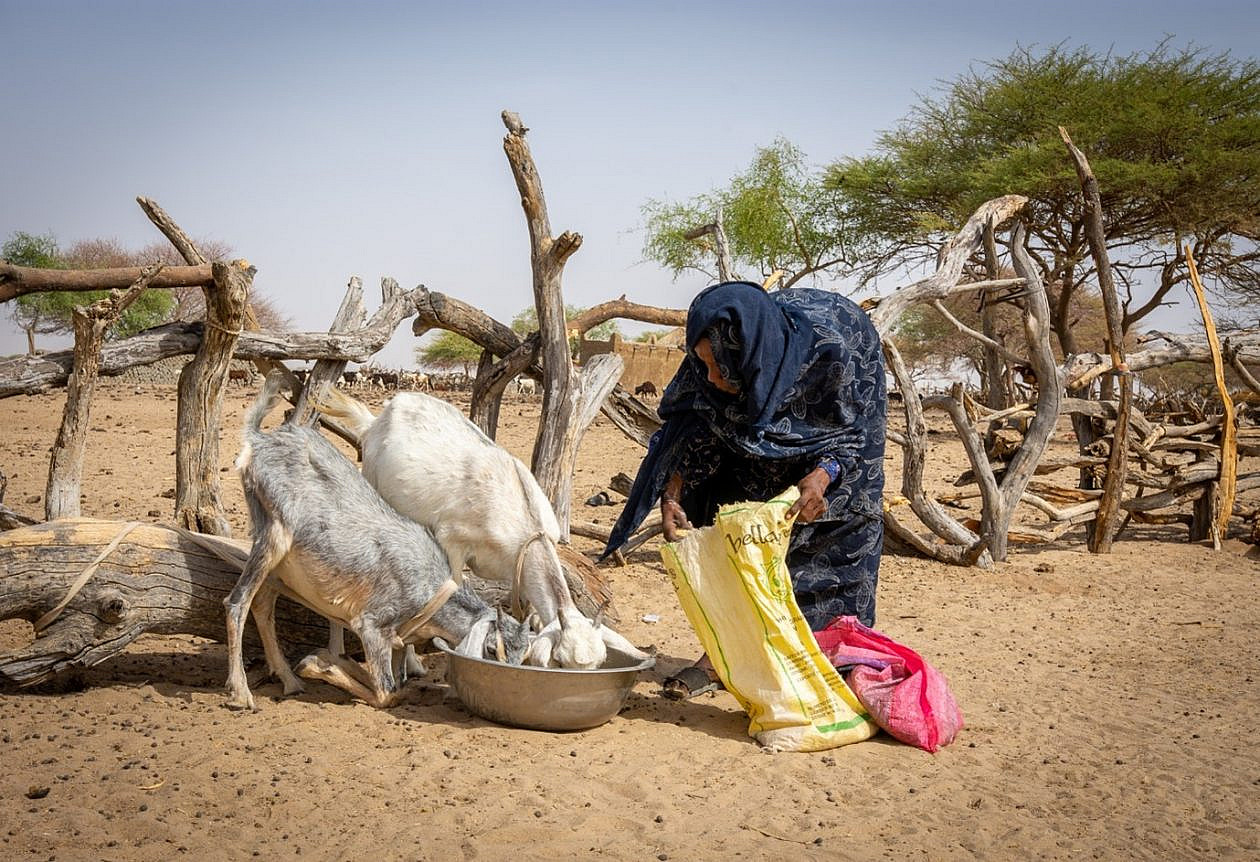
Food Safety: A Chadian Priority
Food security is one of Chad’s priorities, one of the eight orientations of the Chad 2030 vision in the government-led National Development Plan:
VISION OF CHAD 2030
An emerging regional power by 2030, driven by diversified and sustainable sources of growth that create added value and jobs and ensure that every Chadian has adequate access to basic social services, decent housing and appropriate training.
Eight strategic orientations:
1. Sustained growth
2. Food security
3. Job creation and job access
4. Human capital development
5. Private sector development
6. Development of ICTs (Information and Communication Technologies)
7. Environmental protection and adaptation to climate change
8. Improving governance
Food security, agriculture and rural development are among the 5 priority sectors for Sahel Alliance members.
Go further

